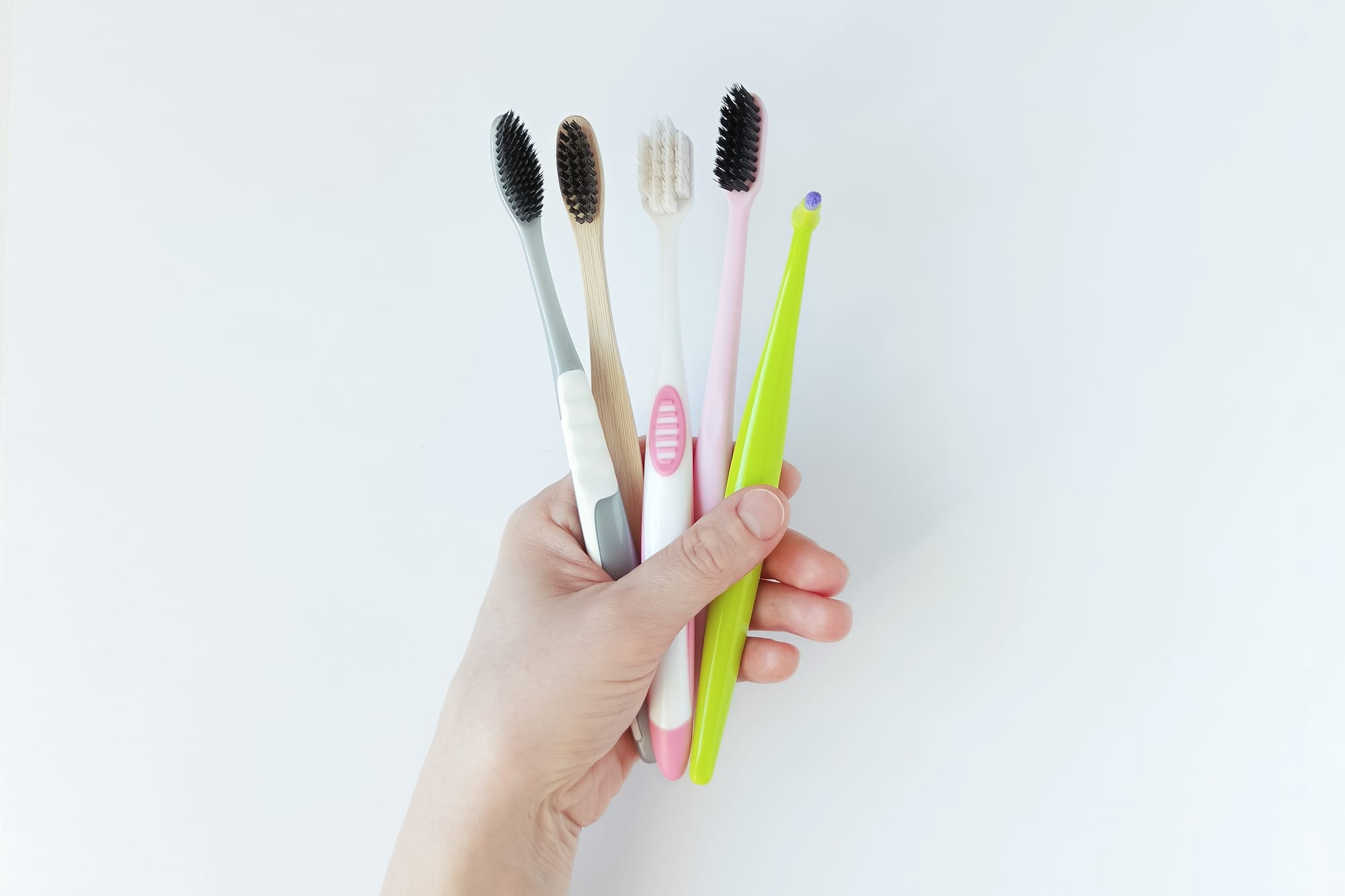
When it comes to choosing a toothbrush, the options can feel overwhelming—manual or electric, compact or full-sized, angled or straight head—but one choice often overlooked is bristle firmness. You’ll usually see toothbrushes labeled as soft, medium, or hard. So, which one is right for you?
Toothbrush bristles are designed to remove plaque, food particles, and bacteria from your teeth and gums. The stiffness of the bristles determines how gentle or abrasive the brush is on your enamel and soft tissues.....But harder doesn’t always mean better!
Soft Bristles: #1 Recommended
Recommended by most dental professionals, soft-bristled toothbrushes are the safest and most effective option for the majority of people.
Benefits:
- Gentle on enamel – Prevents enamel wear that can lead to sensitivity
- Safe for gums – Minimizes the risk of gum recession or irritation
- Effective at plaque removal – Especially when used with the correct brushing technique
Best for:
- Everyone!
- Patients who brush with pressure or speed
Tip: Even if your teeth feel tough, your enamel and gums are not immune to damage from harsh brushing.
Medium Bristles: A Middle Ground?
Medium bristles offer more firmness than soft bristles and may seem like a good compromise. However, they can still cause damage over time if used with too much force.
Considerations:
- More abrasive than soft bristles
- Can wear down enamel or irritate gums with aggressive brushing
- Not typically recommended for daily use unless specifically advised by your dentist or hygienist
Best for:
- Short-term use when extra plaque removal is needed (e.g., for orthodontic appliances)
Hard Bristles: NEVER Use!
Hard-bristled toothbrushes may seem like they would clean better—but they often do more harm than good.
Risks:
- Enamel erosion – Over time, hard bristles can strip the protective enamel layer
- Gum recession – Can lead to sensitivity, root exposure, and even bone loss
- Increased tooth sensitivity – Especially at the gum line
Best for:
- May be used in very specific cases, such as heavy plaque buildup on dentures—not natural teeth
- Other uses around home, like polishing your shoes. Not really sure why companies keep making them!??? Probably because people keep buying them, therefore STOP.
Extra Soft Bristles: Most FAVORITE
Recommended by those with gum recession and sensitive teeth or gums, these are extra soft-bristled toothbrushes are the loved by all hygienists!
Benefits:
- Gentle on enamel – Prevents enamel wear that can lead to sensitivity
- Safe for gums – Minimizes the risk of gum recession or irritation
- Effective at plaque removal – Especially when used with the correct brushing technique
Best for:
- Those who have gum recession.
- Who have sensitive teeth to cold and touch.
- Patients who brush with pressure or speed
Tip: Extra soft is extra gentle, ensure you take full 2-minutes using Modified Bass technique to brush your teeth.
Other Considerations
- Electric toothbrushes: Most electric toothbrush heads are made with soft bristles, and the oscillating motion does the work. Avoid pressing too hard.
- Brushing technique: Regardless of bristle type, always use a gentle, circular motion, not harsh scrubbing.
- Replace regularly: Change your toothbrush every 3 months or sooner if bristles are frayed.
Bottom Line
✔ Soft bristles are the safest and most effective choice for nearly everyone.
⚠️ Medium bristles may be suitable in select cases but should be used with care.
❌ Hard bristles are not recommended for daily brushing due to the risk of damaging teeth and gums. If you’re unsure what type is best for you, talk to your dental hygienist at your next cleaning. We’re happy to recommend the right toothbrush based on your unique oral health needs.
Your smile deserves gentle care! 🦷✨
Have questions about your brushing habits or toothbrush choice? Contact us today—we're here to help!